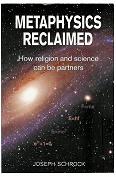I am in the process of reading a rather thought provoking book, "The End of Science,"; by John Horgan. The book is mainly devoted to a discussion over the question of whether science is about at the end of its rope.
Many modern physicists devote much work to an attempt at finding a "Theory of Everything," a theory which would somehow summarize all the laws of physics into one unified "principle" or "force."
At this juncture physicists are aware of the existence of only four fundamental "forces" in the universe; gravitation, electromagnetism, the strong nuclear force and the so-called weak interaction. Many physicists believe that all events and entities in spacetime operate exclusively by the four known forces in nature.
This would suggest that all biology, including human consciousness, is derived from and based upon those four forces. This is a form of reductionism which utterly rejects any form of "vitalism" in biology or any genuine mind or spirit or soul in human consciousness.
This is basically a materialist (and presumably atheistic) approach to the vast and awesome universe in which values, good and evil and spirituality evaporate as merely subjective phantoms which possess no objective reality.
This is a dismal and pessimistic outlook which would render the universe a mere physical reality without purpose, without meaning, and a cold, harsh mindless entity.!
But back to the question of whether the hope for great future scientific discoveries (maybe revolutions such as those of Copernicus, Galileo, Newton and Einstein) is doomed to be dashed by the inability of science to ever again make any major breakthrough in regard to fundamental reality.
Among noted scientists there is no consensus on this question in sight. Some believe that the future for science is open-ended; that they will never run out of challenging mysteries and the potential for great discoveries. Others believe that basic theoretical science has about reached its apogee. For many this latter viewpoint is dull and depressing . Those holding this view may, nevertheless, believe that humanity will indefinitely continue to find new ways of applying the known laws of physics so that scientific innovation never quite reaches a dead end. But this is the science that Thomas Kuhn, in "The Structure of Scientific Revolutions" called "mopping up" (referring to doing applied science, rather than discovering great new theories).
The question of whether theoretical science, as performed by humans, is approaching an end, is one that cannot be answered by us at this juncture.
The fact is that human intellect has boundaries such that its scope and power to comprehend are quite finite. Thus, even if human theoretical science does reach barriers and fizzles out, it would not be proof that we have discovered all there is to know about the fundamentals of reality.
It might merely imply that the human intellect has been stretched to its limits and that its capacity for deeper insight has been exhausted. For all we know, there may be beings on other planets whose IQ's might reach or exceed 500 on our scale. To them, our science might look like kindergarten.
This might not be the case, but it is well for us to confess our intellectual limitations and to realize that our science may be only scratching the surface of ultimate reality.
If there is a spiritual realm, as I think there is, then we may be unable to differentiate the physical/spiritual boundary. Scientists and philosophers of all stripes are searching for viable and meaningful descriptions and definitions for human consciousness. So far, such efforts have failed ignominiously.
If ultimate reality is spiritual, then the closer we approach it, (while clinging to materialistic viewpoints) the more mystified we will become, until we are surrounded by mystery and paradox.
Humility is a virtuous quality, and humankind in general would do
well to get a good dose of it with regard to our scientific knowledge.
By doing so, we may come to see how little we really know, compared
to what might be known.
Joseph Schrock
Starkville, MS
* * *
